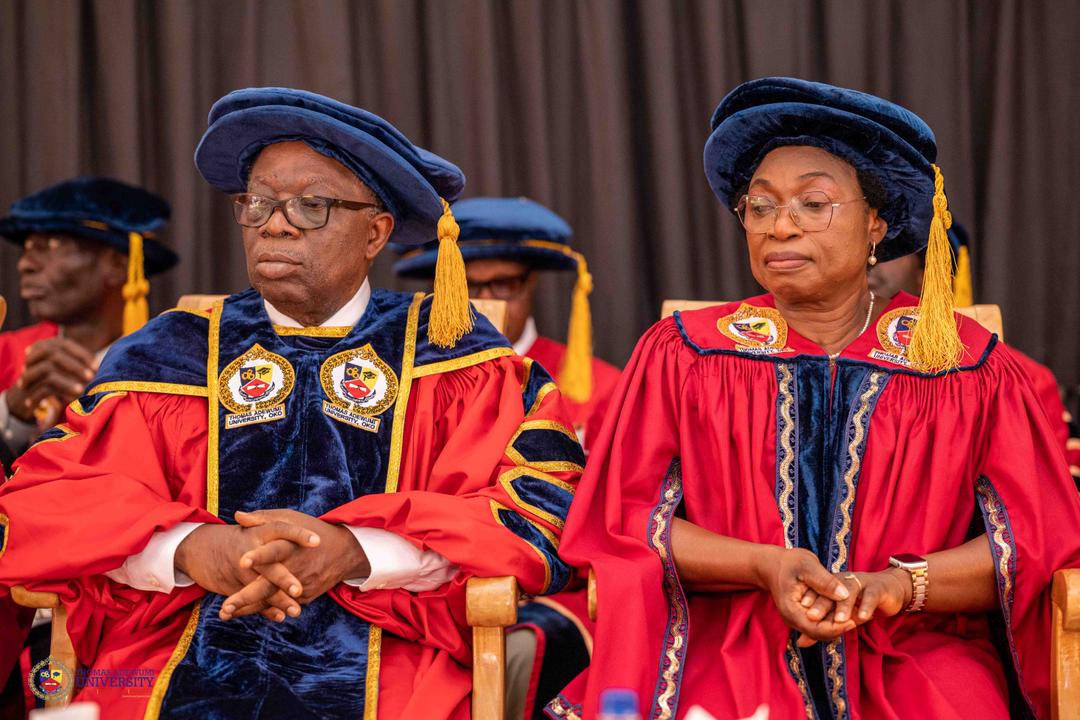Uncategorized
“Woods+medicinal herb+beekeeping” model increase people’s income while improving environment

Thanks to a “woods+medicinal herb+beekeeping” model, which enables residents to make the best of local geographical and resource advantages in development, Wufeng Tujia autonomous county in Yichang city, central China’s Hubei province, has harvested a virtuous cycle of increasing people’s income while improving ecological environment.
Qiaoping village, located in high mountains to the west of downtown Yichang, has 320 households and is a pioneer in Wufeng Tujia autonomous county to try the innovative model.
In the past, residents in the village relied on coal industry for their livelihood. The number of coal mines of various sizes in the village once exceeded 20. Coal mining devastated mountains, leaving dark holes everywhere, said Deng Feng, secretary of the Communist Party of China (CPC) branch of Qiaoping village.
As the environment was destroyed day by day, Deng decided that coal mines must be shut down. In this way, it became necessary for the village to help residents find other ways to make a living after coal mines were closed.
With an average altitude of 1,600 meters, a large temperature difference between night and day, and abundant rainfall, Qiaoping village has great natural conditions for the growth of alpine plants.
Given the geographical and resource advantages of Qiaoping village, officials of the village decided to try growing medicinal herbs in the woods and keeping bees near medicinal herbs.
Qiaoping village has grown trees including Chinese dove trees and golden cypresses, and medicinal herbs like wild Gastrodia elata and Paris polyphylla. In spring, as wild flowers blanket mountains, swarms of eastern honey bees collect nectar.
“Medicinal herbs are shade-loving plants. Many of them prefer high altitudes and need soil rich in humus. Good woodlands have exactly the ideal conditions for the growth of herbs,” Deng said.
Keeping bees near Chinese medicinal herbs has enabled local residents to increase their income, and by gathering nectar, honey bees can help pollinate medicinal herbs and boost their production, according to Deng.
Many residents in Qiaoping village have grown Chinese medicinal herbs in woods with suitable conditions, and Han Meiwu is one of them. Encouraged by village officials, Han joined a cooperative of the village, and started to plant Chinese medicinal herbs and raise eastern honey bees.
“Our current income is something we couldn’t imagine in the past,” said Han. The villager’s family used to live on a low income mainly from growing traditional crops such as corn and potatoes. Since they started to grow Chinese medicinal herbs and raise honey bees, the family has got rid of poverty and moved in a new house in two years.
The cooperative Han joined was established by eight villagers. It has attracted more than 100 households of Qiaoping village. Last year, the annual output value of the cooperative reached nearly two million yuan ($309,600).
By taking the lead in exploring new techniques for seedling breeding and the cultivation of Chinese medicinal herbs and sharing them with villagers, the cooperative has enjoyed increasing appeal among villagers. At present, the acreage of woods with Chinese medicinal herbs in Qiaoping village has surpassed 4,000 mu (about 267 hectares).
In 2020, Wufeng Tujia autonomous county finished tending 2,000 mu of wildwoods, during which weeds and stunted brushwood were cleared and structure and density of tree species were optimized. As the woods have enjoyed more sunlight and provided more nutrients, the quality of arbors in these woods has improved significantly. Meanwhile, the planting area of medicinal herbs has further expanded.
Moreover, improvement in the local ecological environment was followed by the opening of agritainment restaurants and B&Bs in villages, which have gradually become popular destinations among residents in surrounding urban areas for road trips, and trips to avoid summer heat and enjoy leisure time.
“The ‘woods+medicinal herb+beekeeping’ model has created a virtuous cycle. It allows villagers to increase the income without cutting trees down and hurting the ecological environment,” said Tang Zuguo, head of the forestry bureau of Wufeng Tujia autonomous county.
“While promoting the new model during the past several years, we realize that the model has increased the utilization rate of the areas under trees. Villagers can harvest medicinal herbs and honey in the short term, and reap benefits from woody medicinal plants in the long run,” said Tang.
According to Tang, the “woods+medicinal herb+beekeeping” model has witnessed mature application in 18,000 mu of land in the county, which has established 400 mu of industry integration demonstration bases featuring the model.
The model can be replicated and promoted in mountainous areas, Tang said, adding that Wufeng Tujia autonomous county has carried out cooperation with a good number of powerful pharmaceutical enterprises, and is expected to further optimize the model by leveraging new technologies of scientific research institutions as well as colleges and universities
By Qiang Yuwen, People’s Daily
Uncategorized
TAU reaffirms commitment to globally competitive learning

- As 16 graduands make First Class
Stephen Olufemi Oni, Ilorin
The Thomas Adewumi University (TAU), Oko-Irese, in the Irepodun local government area of Kwara State, has reaffirmed its commitment to strengthening quality education, innovation, and globally competitive learning.

Speaking at the institution’s 2nd Convocation ceremony in Oko-Irese, the Vice Chancellor of the University, Professor Francisca Onaolapo Oladipo, said TAU is living up to its ranking as the fastest growing institution in Science, Technology, Engineering, Medicine, and Innovation (STEM-i) ecosystem by surpassing more than 100 percent in its number of graduating students at the second convocation.
She said: “TAU emerged on April 8, 2021, as Nigeria’s fastest-growing Science, Technology, Engineering, Medicine and Innovations (STEM-i) ecosystem. Today, we rank 1st among the 20 private universities that were licensed in
2021, 4th among the 14 Universities in Kwara State, 5th among Nigeria’s over 170 private Universities and 50th nationally, an impressive rise reflecting our unwavering commitment to excellence.
”What a Moment of Extraordinary Significance today, we stand at a crossroads far more significant than words can adequately capture. Exactly one year ago, we gathered at this very Auditorium to celebrate our inaugural Convocation, a ceremony that marked the graduation of 26 pioneering students who dared to believe in a vision when others saw only impossibility. Those 26 trailblazers proved that Thomas Adewumi University was not just a dream, but a reality rooted in excellence. Today, as we honour 63 outstanding graduates, we witness something far more profound than numerical growth.
“This 142% increase in our graduating class is not merely a statistic to be recorded in annual reports, it is a declaration that Thomas Adewumi University has transcended the realm of promise and entered the domain of proof.
“We have moved from potential to performance, from aspiration to achievement, from vision to velocity.
This year, 63 graduands from 4 Faculties and 11 academic programmes are being conferred. It is noteworthy that we have 16 First Class graduates, 40 in Second Class Upper Division, and 7 in Second Class Lower Division. These results reflect the quality of training and mentorship provided at Thomas Adewumi University, and we are proud to contribute these innovators to both the Nigerian and global workforce, confident that they will make a meaningful
impact.
”Preparing Globally Competitive Graduates, these 63 graduands are not merely degree holders, they are comprehensively prepared global professionals equipped with exceptional advantages that set them apart from their peers nationwide. Through our international partnerships, these graduates have obtained additional microcredentials from MIT, Harvard, Stanford, Columbia, Berkeley, and Yale, world-class certifications from Alison, UK, RUDN professional University, Russia, World Bank’s Saylor Academy, Google, ICAN, and the Global Partnership for Sustainable Development initiatives in Data Science and Artificial Intelligence.
“Our Coursera collaboration provided them with additional industry certifications, while partnerships with Microsoft, IBM SkillsBuild, and MIT OpenCourseWare through our Global Campus initiative democratize access to cutting-edge knowledge. They are thus fully equipped to embark on meaningful and innovative careers in today’s technology-driven world.”
Earlier in his Convocation Lecture, titled “Crowdfunding Opportunities forstartups: Equiping Nigerian graduates for a sustainable future”, Dr. Bayo Williams Olugbemi charged the graduads on the mindset of job creation, saying “as a graduate, your future is not defined by what Nigeria gives you, but by what you create. The idea of crowdfunding is the idea of hope. It is proof that when people come together, ideas once impossible become achievable.
“I urge you not to think only about searching for jobs. Instead, think about creating value, and if capital is a barrier, remember: “The crowd can be your first investor.”
In his goodwill message, the Executive Secretary of the National University Commission, Professor Abdullahi Ribadu, represented by Esther I. Eyo, Esq commended the resilience of TAU management said “NUC acknowledges TAU sustained progress in advancing quality teaching, impactful research, innovation, and community engagement, all of which align with our national aspiration for a globally competitive and knowledge-driven university system.
“It would interest you to know that, in the accreditation exercise conducted in 2023, Thomas Adewumi University achieved a 100% Full Accreditation status across all programmes assessed a laudable feat that reflects the University’s strong commitment to maintaining high academic standards.”
Also speaking, the Founder/Chancellor of the institution, Dr. (Engr) Johnson Adewumi, urged the graduands to be good ambassadors of the University, adding: “Remember that your degree is not an end but a beginning, go forth with courage, humility, and a sense of responsibility. Strive to illuminate whatever space you occupy with the light of integrity, excellence and service.”
Highlight of the event was the conferment of an honorary doctorate degree on two distinguished personalities; Engr Oluseyi Afolabi and Pastor Oladokun Olatunde.
End
Uncategorized
photo

L-r Speaker, House of Representatives, Tajudeen Abbas; President of the Senate, Godswill Akpabio and Nigeria’s First Lady, Senator Oluremi Tinubu, during the dinner for members of the National Assembly by the First Lady yesterday. Photo: Senate President’s Office.
Uncategorized
JUST IN: Even Tinubu moves with too many police escorts – Senator Ndume

By Hassan Taiye
Senator Ali Ndume has criticised what he described as the excessive use of security convoys by top government officials, including President Bola Tinubu, warning that the practice leaves ordinary citizens exposed and vulnerable.
Speaking on Politics Today on Channels Television on Thursday, Ndume said many public office holders move with security details that are unnecessarily large, even when their positions do not warrant such heavy protection.
He recalled visiting the residence of a colleague and finding “more than 10 policemen” attached to him, despite the lawmaker being junior to him in the National Assembly.
Ndume further argued that the presidential convoy itself is excessively large, stressing that security efforts should be focused on protecting the overall environment rather than individual personalities.
He said: “I went to one of my colleagues’ house for dinner. And I saw more than 10 policemen. He is even my junior in the National Assembly. Some of them, if you see them coming, you will pull back thinking that maybe it’s the President or the Vice President that is coming.
“
You can see even the president, the convoy that the president goes about with is too much. Secure the place and when the president goes, you withdraw. Secure Abuja and the president can even drive out, you know, himself.
But when you secure personalities, and this is what is happening in Nigeria, then others, common people, as we call them, become vulnerable, and we don’t care. So if you secure Abuja, then you can drive at night. And let me tell you, this is what is happening in most countries”.
The lawmaker’s comments come just days after President Tinubu ordered the withdrawal of police officers from VIP escort and guard duties.
In a statement, the Special Adviser to the President on Information and Strategy, Bayo Onanuga, said the directive was aimed at redeploying police manpower to core law enforcement responsibilities.
-

 Uncategorized5 years ago
Uncategorized5 years agoFG, states urged to harness flooding for ranching, others with technology – Agbaje
-

 Headlines10 years ago
Headlines10 years agoBreaking: EFCC seals Borno House of Assembly, as Hon members take to their heels
-

 News11 years ago
News11 years agoNigeria Security Operatives Stage Manhunt For Homosexual Perpetrator
-

 News9 years ago
News9 years agoHow 21-year-old Girl fled community over accusation of lesbianism
-

 News10 years ago
News10 years agoYobe Gov Moves Against Deputy
-

 Opinion7 years ago
Opinion7 years ago7 signs she has friend zoned you
-
Technology4 years ago
Online job placement company headhunts women
-

 Headlines10 years ago
Headlines10 years agoBorno Dep Gov Abducts Another Church Leader





